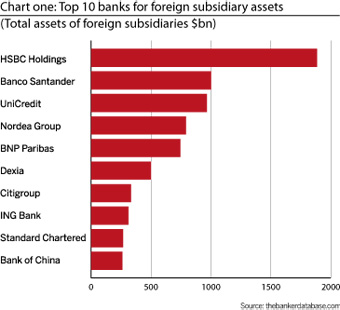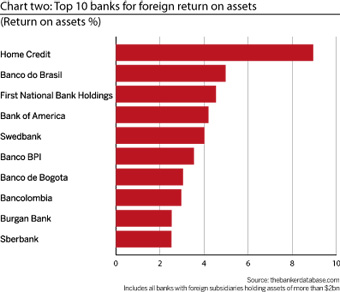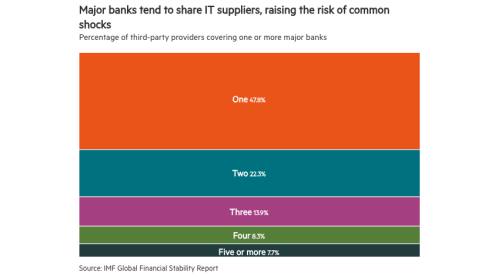For European banks, diversifying into emerging markets is a necessity while their home economies are in the doldrums. UK-headquartered HSBC has always had one foot firmly in Asia, and its 27 foreign subsidiaries that disclose separate data remain by far the largest overseas holdings of any bank, with assets of $1885bn.
The UK remains in recession, but perhaps the Latin American ventures of Spain’s Santander are even more important. The Spanish economy is likely to remain troubled for some time in the face of heavy government austerity measures and a slumping real estate market. By contrast, its foreign subsidiaries (which include Germany and Poland as well as the powerful franchise across Latin America) generated profits of $12.6bn in 2011.
And the bank’s overseas assets, standing at more than $1000bn, have proved to be a means of raising capital for the group as a whole to protect against any unforeseen losses. Both Brazilian and Mexican subsidiaries have held well-received initial public offerings since the financial crisis began.
But western European banks are not necessarily the most successful at building emerging market subsidiaries. In fact, seven of the banks whose foreign subsidiaries had the highest return on assets in 2011 were emerging market parents. Home Credit is the stand out, with a return on assets pushing 9%. The group, which runs specialist consumer credit banks across Russia, China and Vietnam, is legally registered in the Netherlands, but owned by Czech entrepreneur Petr Kellner.
Only two western European banks are in the top 10 for foreign return on assets. A subsidiary in oil-rich Angola represents a major boost for Portugal’s Banco BPI, but the other bank with highly successful subsidiaries is Sweden’s Swedbank. Sweden is a healthier home market than the eurozone, and Swedbank’s Baltic subsidiaries only recently returned to profit, after several years of heavy losses following a property market slump.
And western European banks are also prominent among the worst losers on their travels, primarily owing to exposure to Greece. Luxembourg-based EFG Group suffered a loss of 7% on its Greek asset Eurobank in 2011, and has now sold Eurobank. Belgium’s Dexia and France’s Crédit Agricole (which has sold Greek bank Emporiki) were also among the worst hit. Hungary is another market causing problems, with Bayerische Landesbank suffering a 3.22% loss on assets on its subsidiary MKB.








